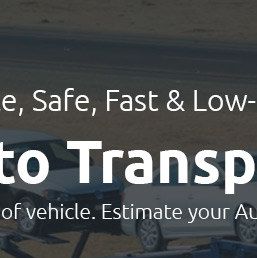 |
|
||||
 |
 |
 |
 |
||
 |
 |
|||||
 |
 |
 |
 |
 |
 |
 |
||
 |
 |
 |
 |
 |
 |
 |
 |
 |
 |
 |
|
 |
Understanding Car Transport Prices: Key Features and HighlightsWhen it comes to car transport prices, there are myriad factors to consider, each contributing to the overall cost of transporting a vehicle from one location to another. Whether you are relocating, selling a car to a buyer in a different state, or simply need to move a vehicle across the country, understanding these factors can help you make an informed decision. First and foremost, distance plays a pivotal role in determining the cost. Naturally, the farther the distance, the higher the price, as longer routes require more fuel, time, and resources. However, the route itself can also impact costs. Popular routes, often well-traveled with efficient logistics, might be cheaper than remote or less-accessible paths. Another critical aspect is the type of transport chosen. Open transport, where vehicles are loaded onto an open-air trailer, is generally more economical compared to enclosed transport, which offers added protection against weather and road debris. Though more costly, enclosed transport is often recommended for luxury, vintage, or high-value vehicles. Seasonality also affects car transport prices. Demand fluctuates throughout the year, with peak seasons, such as summer, often seeing higher rates due to increased relocations and sales. Conversely, shipping during off-peak times might offer savings.
Insurance coverage is another factor that should not be overlooked. While transport companies generally provide basic insurance, reviewing the extent of coverage and considering additional insurance for high-value vehicles can offer peace of mind. Lastly, it is wise to obtain quotes from multiple transport companies to compare prices and services. This not only ensures competitive pricing but also allows you to assess the reputation and reliability of different providers, which can vary significantly. Reading customer reviews and checking ratings with organizations like the Better Business Bureau can offer further insight. In conclusion, car transport prices are influenced by a variety of factors, each adding to the complexity of determining the final cost. By understanding these elements, from distance and transport type to seasonal demand and vehicle specifics, individuals can navigate the car transport landscape more effectively, making choices that align with their budget and logistical needs. While the process may seem daunting, a thorough understanding coupled with diligent research can lead to a successful and cost-effective vehicle transport experience. https://www.wewilltransportit.com/how-much-does-it-cost-to-ship-a-car-to-new-york/
In New York, open-car shipping costs approximately $650, and enclosed auto transport costs roughly $3,800. However, shipping costs may fluctuate based on ... https://smartautomove.com/new-york-auto-transport-rates-calculator-new-york-ny-car-shipping-quotes-price/
Auto transport on an open car carrier to or from New York State is generally in the .40 cents to .50 cents per mile range depending on the price of fuel at ... https://shipacardirect.com/auto-transport-to-or-from-new-york/?srsltid=AfmBOopPiGH-PRW922jQEdWwylCowgly2j1KpshVfHb_h859qV7PIdIS
The prices vary based on several factors, such as if the vehicle is being shipped alone or with other vehicles and how far away the destination is (the price ...
|
